If you’re anything like most Americans, you are an active texter. 85% of cell phone owners text, which is up from 57% just 5 years ago. Here are a few more interesting statistics about this rapidly growing mode of communication:
-96% of smart phone users send texts.
-49% of those who use social media on a daily basis would rather text than call (hello female pet owners!!!)
-1.6 trillion texts were sent in the US last year…TRIPLE that of just 5 years ago.
Cell phones are almost always with us, and 86% of texts are read within one hour of receiving. On the other hand, 90% of marketing emails are never read, which is a big reason for the decline in pet parent compliance: your reminders are mixed in with the other 200+ unread emails in their inbox.
In light of these surprising facts, it is no wonder that texting is replacing the telephone for many people in many situations. Especially for us introverts (which make up about 40% of your client base), texting and emailing are far more preferable to “invasive” phone calls. As if that’s not enough, Millennials now make up 60% of the US workforce, so if you’re not mobile, you’re largely irrelevant to this HUGE cohort of pet lovers. So, remind me, why aren’t you texting with your clients?
Here are three ways you can use texting in your practice:
Idea #1: Old School
Use a staff member’s cell phone and use it for text/photo sharing. Downside is that now the client has their personal cell number and you can’t document anything in the medical record, but it’s simple and easy. Not a great idea.
Idea #2: Getting warmer
Get a cell phone for your clinic, require that it stay on the premises and use it to communicate with clients who would rather text with you than call/email. It’s also a great failsafe if there’s a thunderstorm that knocks out your power/phones. Here in the Mid-Atlantic region, we have afternoon thunderstorms during the summer that take out our phone lines on a regular basis. Having a clinic cell phone offers great peace of mind against losing your phone service, which is the lifeblood of your practice. In such a situation, push out a notice on your Facebook page by using someone’s smartphone that isn’t affected by the power loss. The point of the message is simple: the power and phones are down but you can be reached at XXX-XXX-XXXX.
Given how inexpensive cell phones have gotten, they are an incredible value to your clients and staff. You don’t need a smartphone, just a simple flip phone with basic coverage that has a texting plan. The challenge is that none of your conversations are documented and “If it isn’t in the record, it didn’t happen” is an all too familiar refrain in the modern medical practice.
Idea #3: Details matter
We’re about to release a couple new features at VitusVet that will address the above shortcomings. Any of your team members can download the VitusVet app and sign in using the hospital’s login info, rather than their personal info. He or she can then take pictures and send texts to pet owners without using personal cell phone information. We also integrate with your practice management software so that all of these conversations are documented in the medical record. Easy-peasy.
Initially, you can let your clients dictate how/if they want to text with you by putting a note on the bottom of your receipts telling them that you now are able to receive texts. Or maybe put up a sign in your hospital that says something like, “Text us with any questions or concerns….we are committed to open lines of communication!” and lists your cell number. Or have your receptionists say something at check out, like “Thanks for coming in today! You can call, email or text us if you have any questions or concerns!”
Communication channels are evolving. Are you?
At the end of the day, it’s about finding your clients where they are, not where you want them to be. Not everybody wants to talk on the phone anymore, and email has some serious limitations as well. Most of you have firm guidelines and follow best practices when it comes to telephone etiquette. Why wouldn’t you be just as focused on email and text as means of client engagement? You wouldn’t let a phone ring for 2 hours before answering it, so why do you let client emails go unanswered for hours at a time? We should all be doing everything we can to bond our clients more tightly to our practices and remain relevant; a huge part of that is how you communicate with your clients. Texting isn’t a fad and it should be a no-brainer at your hospital. By all means keep it simple, but try it!
 by a veterinarian
by a veterinarian


